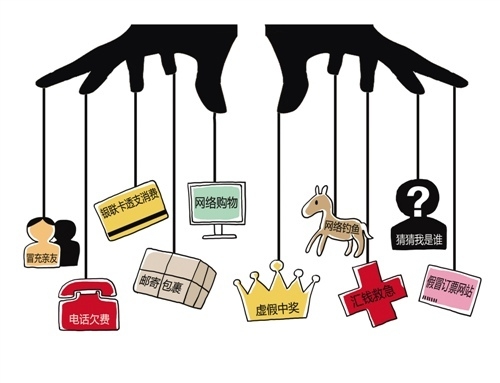Recently, the prospective female college student Xu Yuyu lost her life because she was swindled by fraud. Fraudsters defrauded the girl with a tuition fee of $9,900 for a grant of 2,600 yuan. Afterwards, the girl died in an extremely low mood. Behind the embarrassment, it is people's attention to the issue of telecom fraud, and virtual operators seem to be the hardest hit areas in recent years.

What is a virtual operator?
In short, virtual operators are the agents of mobile, China Unicom, and telecommunications. After the virtual operators have contracted the right to use some of the communications networks from the aforementioned basic operators, they sell their communications services to consumers through their own billing systems, customer service numbers, marketing, and management systems. This means that virtual networks are virtualized in the form of leased networks. Operation.
There are also rules for identifying the virtual segment. Segments 170 and 171 are the exclusive number segments of the virtual operator. Based on the first four digits of the mobile number in the 170th segment, it can be distinguished which of the basic operators of the virtual operator is. Among them, 1700, 1701, and 1702 are China Telecom, 1703, 1705, and 1706 are China Mobile, and the entire numbers of 1704, 1707, 1708, 1709, 1710, and 171 are China Unicom.
The phone number received by Xu Yuyu was at the beginning of 1718, which was attributed to the Shandong region and was assigned to China Unicom's number.
Why is it always a virtual operator?
According to relevant statistics, since the Ministry of Industry and Information Technology began to encourage private capital to enter the telecommunications market in 2012, 42 private enterprises have already obtained virtual operation qualifications. Compared with traditional operators, this figure is a bit complicated. Although the Ministry of Industry and Information Technology has been strengthening supervision and supervising the implementation of real-name system policies, 170 and 171 are still high-signed issues for telecommunications fraud. In Wenzhou alone, since the establishment of the Wenzhou Anti-fraud Center, more than 3,000 telephone frauds have been received, and Section 170 has accounted for more than one-third.
A security expert who worked at a domestic Top Internet company told Lei Fengwang (search for "Lei Feng Net" public concern) that fraudsters use virtual operators to scam means the same as traditional operators. Although the real name system has been implemented, it is relatively easy for the virtual operators to purchase relative to the basic operators. This allows the fraudsters to shift their target to emerging virtual operators.
The virtual operator's cards are all processed on the website. Although it is also necessary to provide information on the front and back of the ID card, it is only necessary to upload it in the form of a picture. And this information is very easy to buy and has its own industrial chain. In addition, the communication charges between paragraphs 170 and 171 are relatively low, such as free of roaming and long-distance fees and other preferential services, which also greatly reduces the risk and cost of illegal elements.
On the whole, in the case of fraud, there are two reasons why virtual operators' numbers are used: 1. The virtual operators' real name management is not as stringent as traditional operators; 2. The virtual operators' tariffs are relatively cheap.
Looking back at the entire incident, in addition to the cheap and relatively loose virtual operator numbers becoming channels during the process of girls being deceived, there is also an important factor that Xu Yuyu’s personal information is leaked:
The liar told Xu Yuyu that there was a 2,600 yuan grant to be issued to her. This involved Xu's name, telephone number, and bursary information.
Coincidentally, on the previous day Xu had received a notice from the education department granting bursaries, which made her relaxed.
Whether it is a coincidence or an intentional man, Xu’s important information has spread wildly.
How to avoid these problems, the aforementioned security expert's suggestion is that on the operator's side, although the number has real-name authentication, the real user and the authenticator are inconsistent. At present, there is no better solution. On the user side, it is to increase awareness of fraud prevention and use security management software to protect personal privacy in daily life. In the face of temptation, we must survive the test.